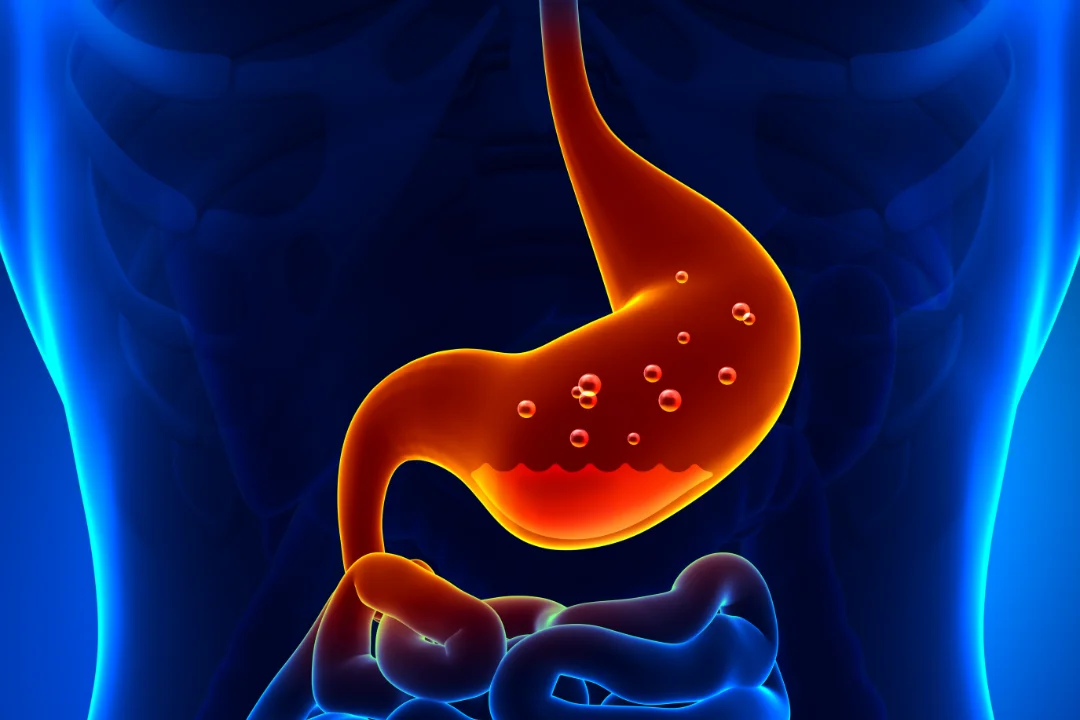What is Functional Dyspepsia?
Functional dyspepsia is a chronic digestive condition that is characterised by persistent or recurrent symptoms of indigestion without a clear identifiable cause. It is a very common condition in which patients experience pain and discomfort primarily, in the upper abdomen, accompanied by a sense of fullness or bloating during or after meals.
What are the types of Functional Dyspepsia?
Functional dyspepsia can be classified into two categories, which often overlap:
- Epigastric pain syndrome (EPS) — This condition is characterised by recurrent pain or discomfort in the upper abdomen.
- Postprandial distress syndrome (PDS) — This is characterised by uncomfortable feelings of fullness that occur following the consumption of a meal.

Functional Dyspepsia Vs. GERD
An episode of acid reflux and chronic reflux can develop into GERD (gastroesophageal reflux disease), which is also commonly found in individuals worldwide. Similarly, functional dyspepsia is one of the most common gastrointestinal disorders, affecting over 20% of the population. It has been estimated that 8 out of 10 cases with chronic indigestion are ultimately diagnosed with functional dyspepsia, and 7 in every 100 people around the globe have the condition.
GERD, on the other hand, is relatively uncommon among Asians, but there has been a rise in GERD in Singapore, highlighting the need for proper treatment to enhance the quality of life of patients. Although acid reflux and GERD share similar symptoms with dyspepsia, acid reflux sufferers predominantly present symptoms of heartburn and regurgitation, while dyspepsia usually involves an intermittent or aching pain that affects the upper abdomen (epigastric pain).
Functional Dyspepsia Vs. Gastritis
Gastritis occurs when the lining of the stomach becomes inflamed and may have many possible causes, including Helicobacter pylori infection, excessive alcohol consumption, and certain medications like aspirin and ibuprofen. Patients with gastritis typically suffer from pain, indigestion, and malaise (a general feeling of illness or discomfort).
Both gastritis and functional dyspepsia share some similar symptoms, but they are completely different conditions. Individuals may, at times, be affected by both. While you may experience some relief from gastritis treatment, it will not provide complete relief for your functional dyspepsia, thus treatment for functional dyspepsia is still necessary. The dyspepsia treatment provided will vary depending on your symptoms and severity.
What causes functional dyspepsia?
Indigestion that arises due to functional dyspepsia has no known single definitive cause and may occur as a result of a number of different underlying causes, including the following:
- Food allergies and other allergens
- Impaired stomach emptying
- Helicobacter pylori infection
- Intestinal microbiome changes
- Elevated acid secretion
- Diet and lifestyle habits
- Certain medications
- Stress (visceral hypersensitivity)
Symptoms of Functional Dyspepsia
Functional dyspepsia is chronic, and dyspepsia symptoms can come and go over time, depending on certain factors and triggers. These symptoms include:
- Epigastric (upper abdominal) pain
- Bloated stomach
- Excessive belching
- Sour taste in the mouth
- Early satiety
- Loss of appetite
- Nausea and vomiting
Medical Director of Alpha Digestive & Liver Centre, Dr Benjamin Yip reminds us that it is important to get checked as symptoms of functional dyspepsia may mimic stomach cancer and can occur in individuals as young as 30! If in doubt, please see your Gastroenterologist for an assessment!
When should you visit a doctor?
If your symptoms persist, causing you to be concerned and worried, medical attention must be sought. You should also see a Gastroenterologist if any severe symptoms like weight loss (unexplained), black tarry stools, bloody vomit, shortness of breath, or pain in your jaw, neck, or arm occurs. Functional dyspepsia, however, is generally not serious or associated with severe complications, even though it can present itself intermittently and linger on for a long time.
What risk factors contribute to Functional Dyspepsia?
Certain factors can increase the risk of functional dyspepsia. These include:
- Female gender
- Overuse of over-the-counter pain relief medication, like aspirin
- Smoking or using tobacco products
- Anxiety or depression
A history of childhood physical or sexual abuse
How is Functional Dyspepsia diagnosed?
Your Gastroenterologist will assess your condition by reviewing your medical history as well as your current signs and symptoms. They will also perform a physical examination and certain investigations like endoscopies and blood tests to rule out any disorders that may mimic dyspepsia. These tests may include the following:
- Gastroscopy— To detect any structural abnormalities in the upper GI (gastrointestinal) tract.
- Blood tests — To rule out any infections and diseases that may be causing your symptoms.
- Urea breath test — To detect the presence of Helicobacter pylori in your stomach. Some Gastroenterologists may also utilise the hydrogen breath test to detect SIBO (small intestinal bacterial overgrowth).
- Gastric emptying studies — To examine how quickly your stomach empties food into your small intestine.
Treatment options
Treatment of functional dyspepsia is done through a combination of medication, behavioural therapy and lifestyle changes.
- Medications that reduce stomach acid production, like proton pump inhibitors (PPIs), may be helpful in alleviating the symptoms of acid reflux. Other medications, such as antiemetics and low-dose antidepressants may also be prescribed to treat the symptoms of dyspepsia. While antiemetics are beneficial in relieving nausea, low-dose antidepressants are known to be helpful in treating the disorder.
- Behaviour therapy can be useful in easing symptoms that cannot be managed by medication alone. By working with a therapist or counsellor, you will be able to learn some relaxation techniques that will benefit you greatly in coping with the symptoms, as well as reducing any stress that flares up due to the condition.
- Lifestyle changes are often recommended, especially in the initial phase of treatment, to ease the symptoms. A change in diet and eating habits can help – eating smaller and more frequent meals and avoiding trigger foods like spicy or greasy foods can help
toalleviate and control your symptoms.
Summary

Functional dyspepsia is a chronic condition, which means it may come and go, depending on many factors. Although it is not a severe condition, it can affect your quality of life significantly. Thankfully, with medication and lifestyle changes, it can be managed and treated effectively. It is important, however, to consult your Gastroenterologist as functional dyspepsia may display the same symptoms as other gastrointestinal disorders. Therefore, a detailed assessment from a specialist is often necessary to reach the right diagnosis.
For more information on functional dyspepsia and other concerns, get in touch with our team at Alpha Digestive & Liver Centre today to consult our experienced Consultant Gastroenterologist Dr Benjamin Yip!
References
- “Functional Dyspepsia: Symptoms, Diet, Treatment & Living With.” Cleveland Clinic, 10 January 2022, https://my.clevelandclinic.org/health/diseases/22248-functional-dyspepsia. Accessed 10 January 2023.
- “The Diagnosis and Treatment of Functional Dyspepsia.” NCBI, 30 March 2018, https://www.ncbi.nlm.nih.gov/pmc/articles/PMC5938438/. Accessed 10 January 2023.
- “Peptic ulcer Information.” Mount Sinai, https://www.mountsinai.org/health-library/diseases-conditions/peptic-ulcer. Accessed 10 January 2023.
- “Functional Dyspepsia”. GutsUK! Accessed 19 January 2024. https://gutscharity.org.uk/advice-and-information/conditions/functional-dyspepsia/
- “Functional Dyspepsia”. Mayo Clinic. Accessed 19 January 2024. https://www.mayoclinic.org/diseases-conditions/functional-dyspepsia/symptoms-causes/syc-20375709
- “Functional Dyspepsia”. GI Society. Accessed 23 January 2024. https://badgut.org/information-centre/a-z-digestive-topics/functional-dyspepsia/

